Understanding Steel Coil Upender Warranties: What You Need to Know
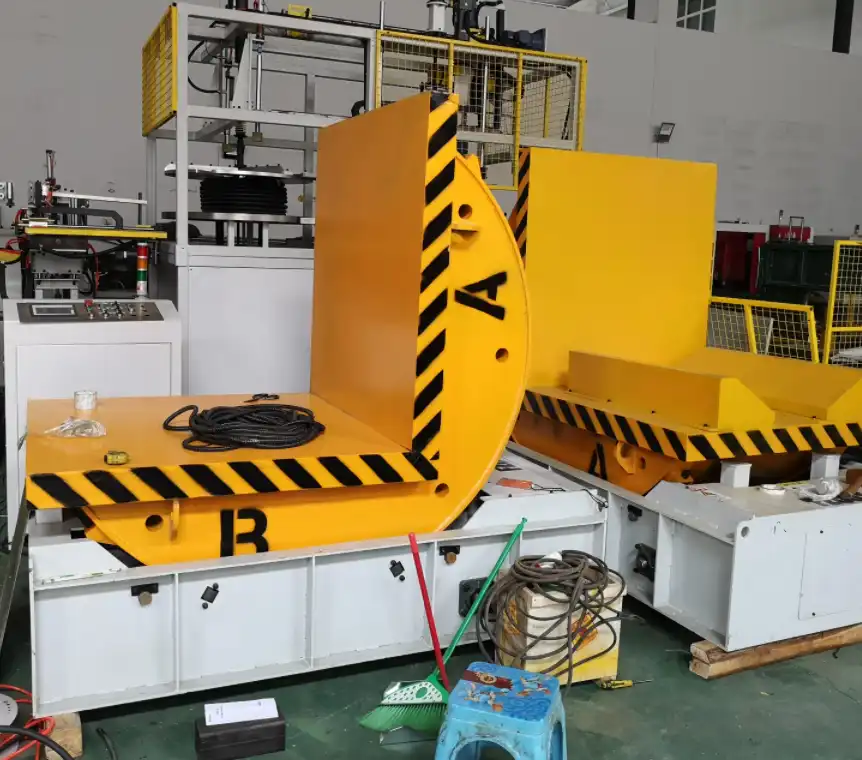
Introduction
Investing in heavy-duty industrial equipment like a steel coil upender represents a significant capital expenditure. Therefore, understanding the manufacturer's warranty is critical. A comprehensive warranty protects your investment against defects and provides assurance that potential issues will be addressed promptly, minimizing operational disruptions. This guide explores the essential components of steel coil upender warranties, typical coverage details, common exclusions, and how this information should factor into your purchasing decision to ensure long-term value and operational reliability.
What Is a Steel Coil Upender?
Before delving into warranty specifics, let's clarify the function of this equipment. A steel coil upender, often referred to as a coil tilter or coil flipping machine, is indispensable in industries handling large steel coils. Its primary purpose is to safely and efficiently rotate coils between horizontal and vertical orientations. This capability is crucial for various stages, including storage, transportation, and feeding coils into processing lines. Proper handling with an upender minimizes the risk of damage to valuable coils and significantly enhances workplace safety and operational efficiency. Given their critical role, ensuring your upender is backed by a solid heavy equipment warranty is vital for uninterrupted production.
Standard Warranty Duration for Coil Upenders
The warranty period for steel coil upenders typically varies by manufacturer but generally falls within a 1 to 3-year range for standard coverage. Common offerings include:
- 1-Year Basic Warranty: This is the most common minimum standard, typically covering defects in materials and workmanship. Should the coil upender fail due to such issues within the first year, the manufacturer is usually obligated to provide repairs or replacement parts at no charge.
- Extended Warranties: Some manufacturers offer extended coverage, either as standard for certain components or as an optional purchase. Critical parts like the main structural frame or hydraulic systems might have warranties extending up to 5 or even 10 years. This longer coverage often reflects the manufacturer's confidence in the durability and build quality of their industrial machinery.
When evaluating options, remember that a longer warranty duration can be an indicator of higher product quality and manufacturer accountability.
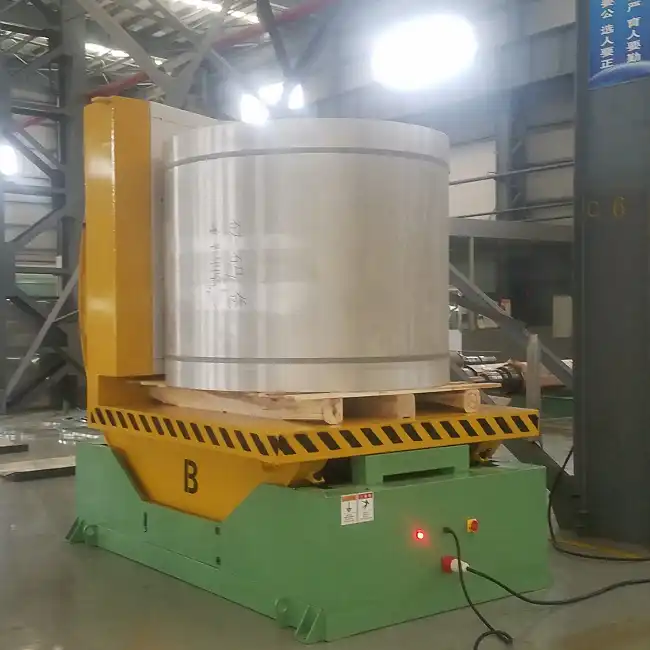
What Is Typically Covered in a Steel Coil Upender Warranty?
Understanding the scope of coverage is as crucial as the warranty duration itself. Here’s a breakdown of components usually included:
1. Material and Workmanship Defects
This forms the core of most warranties. It covers failures resulting from substandard materials or flaws in the manufacturing process. If a weld fails prematurely or a component is incorrectly assembled, leading to malfunction, the warranty should cover the necessary correction. This ensures the coil handling equipment performs as expected under normal operating conditions during the initial warranty period.
2. Hydraulic System Components
Steel coil upenders often utilize hydraulic systems for their powerful and smooth tilting motion. Key components like the hydraulic motor, cylinders, valves, and pumps are generally covered for a specific period, often 1 to 2 years. Given the potential cost of hydraulic repairs, warranty coverage for this system is a significant benefit.
3. Electrical Components
The electrical system, including control panels, PLCs, sensors, limit switches, and wiring, is another critical area. Coverage typically includes malfunctions not caused by external factors like power surges or operator error. Reliable electrical components are essential for precise control and safe operation.
4. Structural Integrity
The main frame, base, and tilting platform are fundamental to the upender's function and longevity. These structural elements are often covered for the longest duration, sometimes up to 10 years, reflecting their robust design. This coverage protects against issues like cracking or deformation under rated load conditions.
Common Warranty Exclusions: What’s Usually Not Covered?
No warranty provides blanket coverage. It's essential to understand the limitations and warranty exclusions. Common examples include:
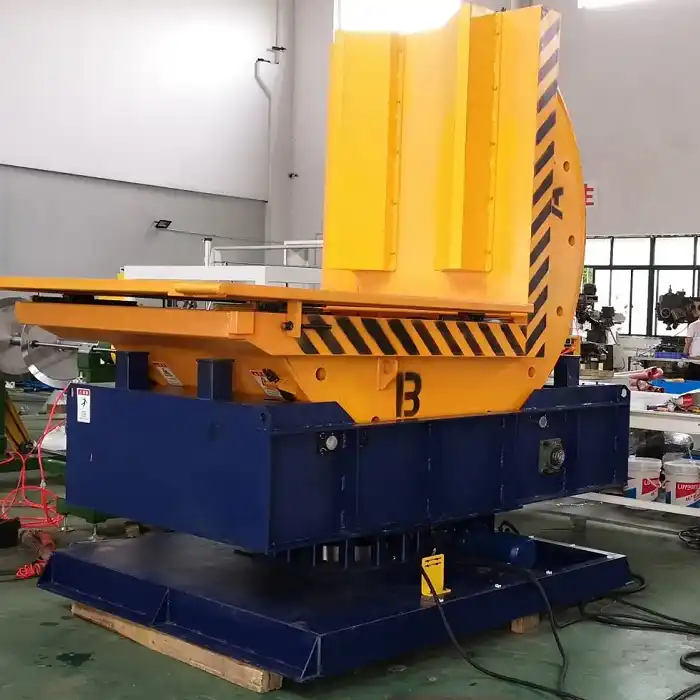
1. Normal Wear and Tear
Components expected to degrade through regular use are typically excluded. This includes items like hydraulic seals, hoses, filters, lubricants, and certain bushings or bearings. These are considered maintenance items and their replacement is generally the owner's responsibility.
2. Damage from Misuse or Negligence
The warranty will likely be voided if the upender is damaged due to operator error, overloading beyond its rated capacity, failure to follow proper operating procedures, or inadequate upender maintenance. Adhering to the manufacturer's guidelines is crucial.
3. Unauthorized Modifications or Repairs
Any alterations to the machine's structure, controls, or safety systems performed without the manufacturer's approval can invalidate the warranty. Similarly, using non-authorized personnel for repairs might void coverage on affected components.
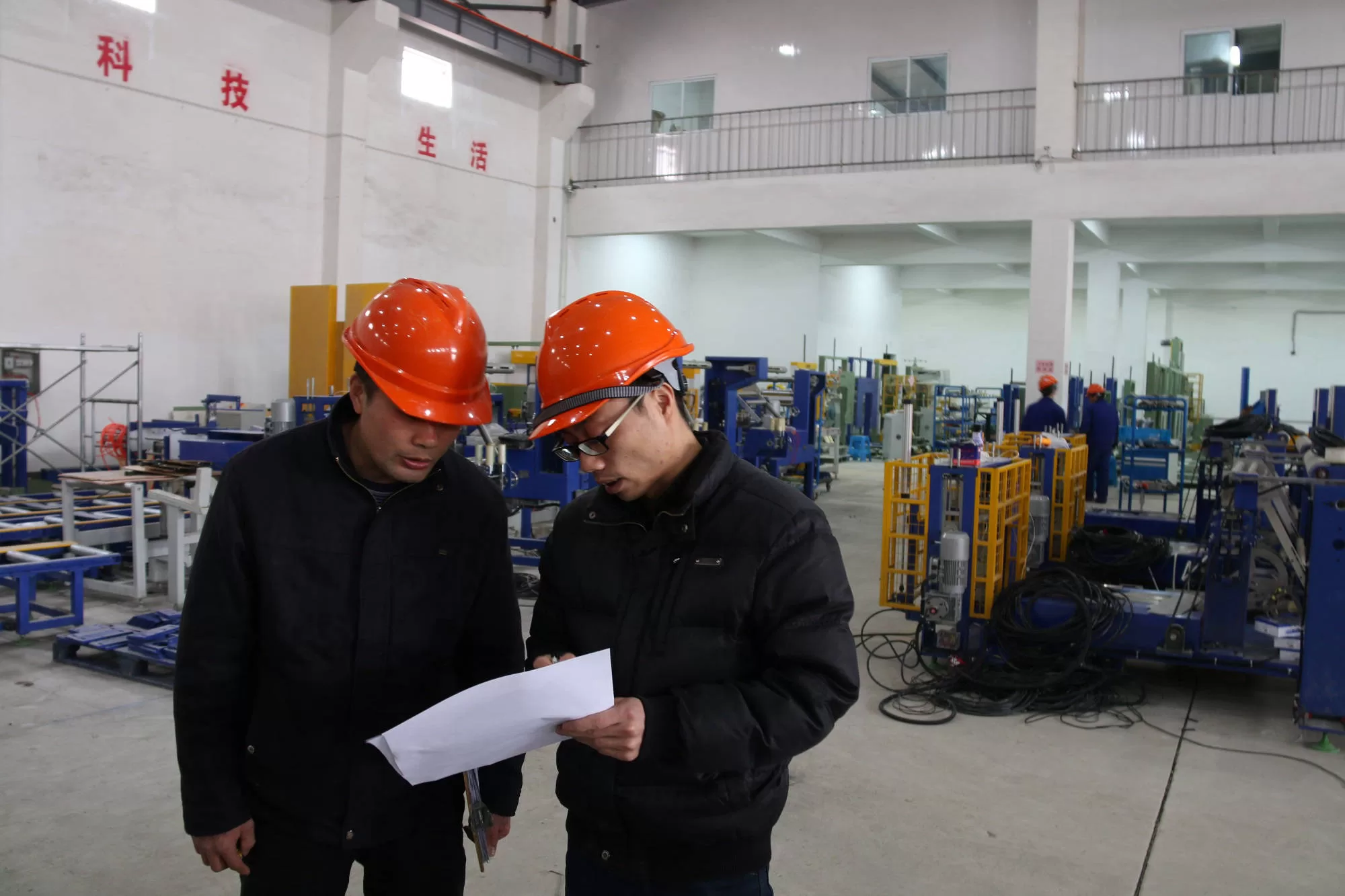
Get Your Best Solution !
How to Make a Warranty Claim
Should an issue arise that you believe is covered by warranty, follow the manufacturer's specified warranty claims process. Generally, this involves:
- Notify the Manufacturer/Dealer Promptly: Contact the supplier or manufacturer as soon as the defect is discovered. Be prepared to provide the machine's serial number, proof of purchase, and a detailed description of the problem. Photos or videos can be helpful.
- Diagnosis and Inspection: The manufacturer may require an inspection by an authorized technician to confirm the cause of the failure and verify warranty eligibility. This might involve remote diagnostics or an on-site visit.
- Repair or Replacement Authorization: If the claim is approved, the manufacturer will authorize the repair or replacement of the defective part(s). Clarify whether labor costs are covered, as this varies between warranties.
- Logistics and Costs: Understand who covers shipping costs for replacement parts or if the machine needs to be sent for repair. While parts are often free under warranty, associated costs like shipping or technician travel might not be.
The Importance of Carefully Reading Warranty Terms
Before finalizing your purchase, meticulously review the full warranty documentation. Pay close attention to:
- Specific coverage periods for different components (e.g., structure vs. hydraulics vs. electrical).
- The exact warranty claims process and required documentation.
- Any actions or omissions that could void the warranty (e.g., maintenance requirements, use of non-OEM parts).
- Limitations on liability (e.g., exclusion of consequential damages like lost production).
Understanding these details upfront prevents misunderstandings later and ensures you can maintain warranty validity.
Evaluating Extended Warranties: Are They Worth the Cost?
Manufacturers or third parties often offer extended warranties or service contracts at an additional cost. These can prolong coverage and sometimes include benefits like preventive maintenance visits or priority service.
Deciding whether an extended warranty for industrial equipment is worthwhile depends on factors like:
- The intensity of machine usage (e.g., multi-shift operations).
- The operating environment (e.g., harsh conditions).
- The potential cost of repairs for major components (e.g., hydraulic system overhaul).
- Your organization's maintenance capabilities and risk tolerance.
Analyze the cost versus the potential benefits and risk mitigation provided by the extended coverage.
Tips for Maintaining Your Warranty Coverage
To ensure your warranty remains valid throughout its term, follow these best practices:
- Perform Regular Maintenance: Strictly adhere to the manufacturer's recommended maintenance schedule for inspections, lubrication, filter changes, and other tasks. Keep detailed maintenance logs.
- Use Authorized Service Providers: For any repairs or significant servicing, utilize technicians certified or authorized by the manufacturer.
- Operate Correctly: Ensure all operators are properly trained and follow the specified operating procedures, including load limits and safety protocols.
- Keep Records: Maintain thorough records of purchase, operation, maintenance, and any service performed.
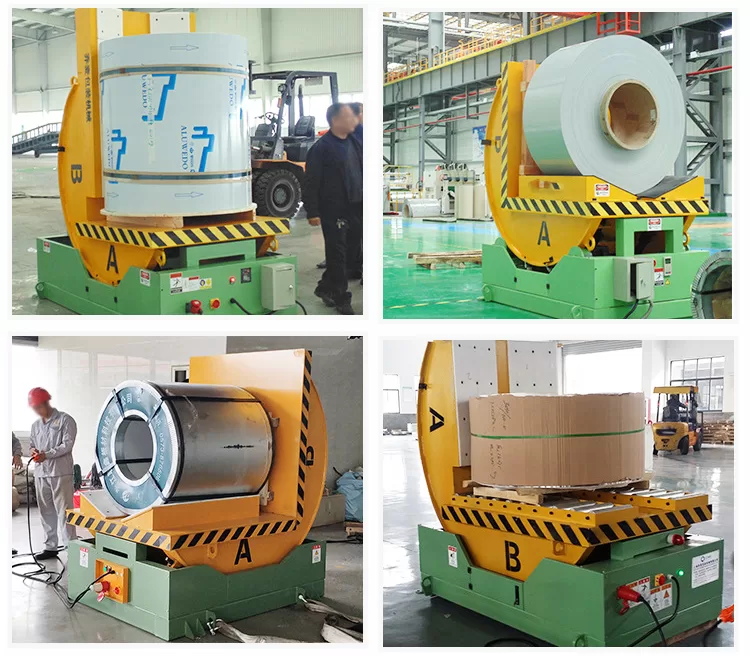
Conclusion
A robust warranty is a critical aspect of your steel coil upender investment, providing essential protection and peace of mind. By thoroughly understanding the warranty duration, scope of coverage, exclusions, claims process, and requirements for maintaining validity, you can make a more informed purchasing decision. Prioritize manufacturers who offer clear, comprehensive warranties and stand behind their products. Ensuring your warranty aligns with your operational needs helps maximize the equipment's lifespan, minimize unexpected downtime, and safeguard your investment for efficient and safe steel coil handling for years to come.